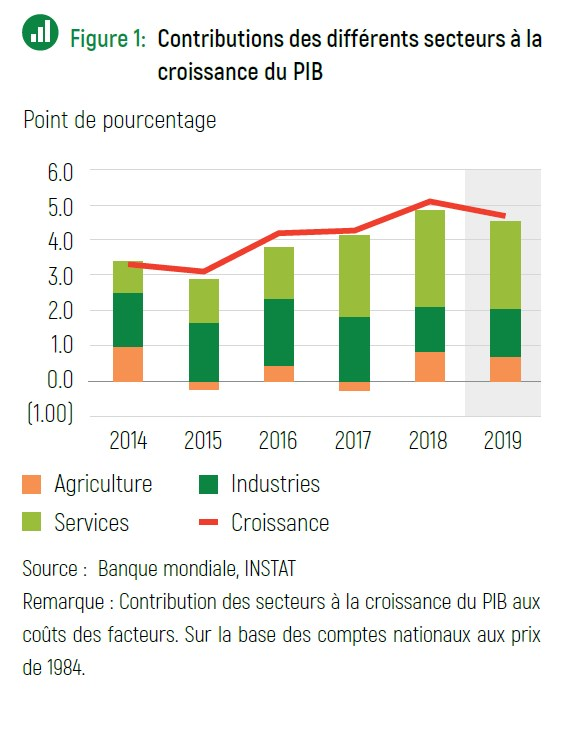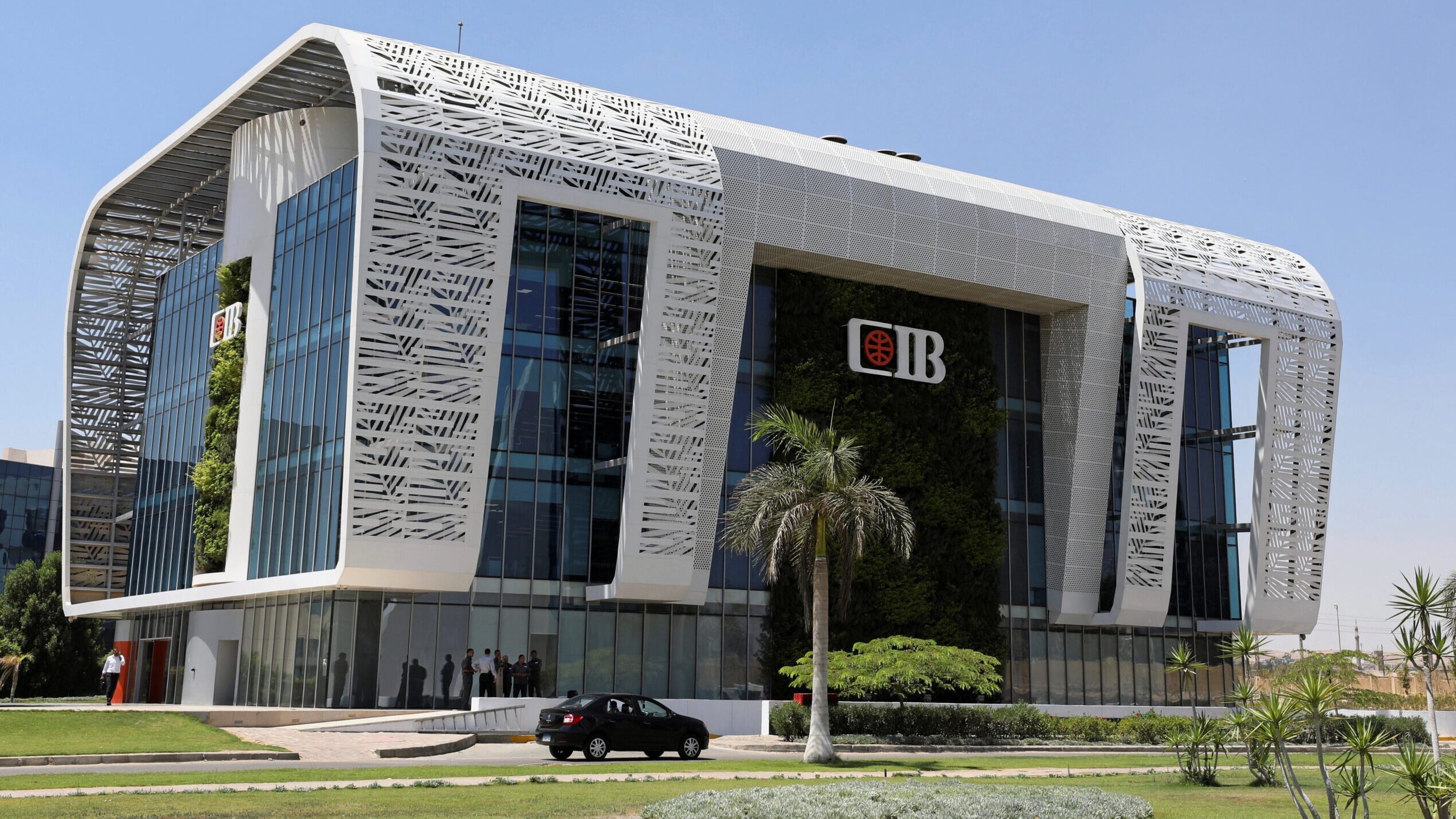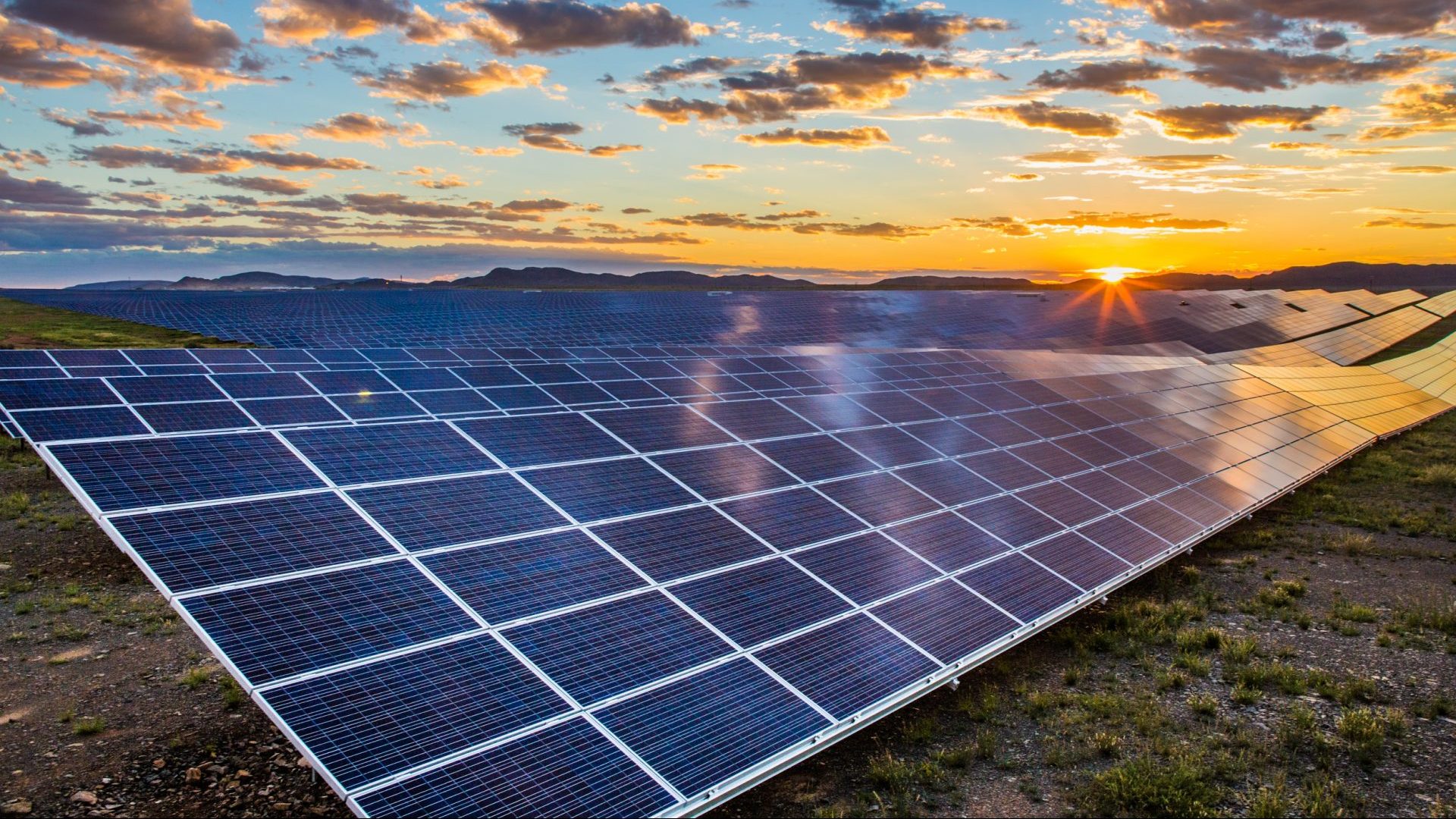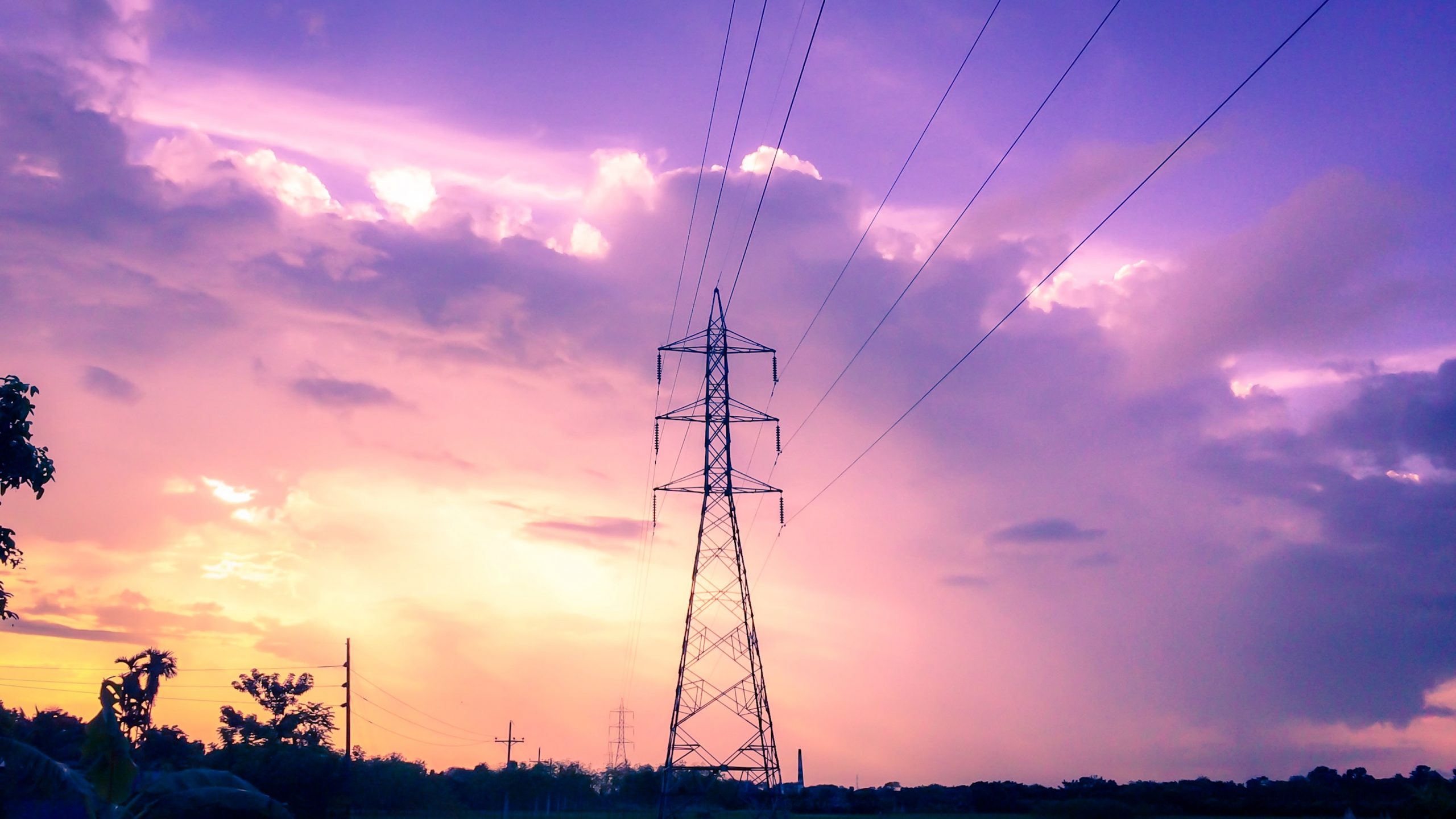La Banque mondiale vient de publier une note sur la conjoncture économique de Madagascar. Intitulée “Un nouveau départ ?”, l’étude prévoit un petit ralentissement de la croissance en 2019, avant une reprise, normalement, dans les prochaines années.
L’institution de Bretton Woods a publié une note sur la conjoncture économique de Madagascar, ce vendredi 25 octobre, dans laquelle elle insiste sur l’amélioration de la fiscalité et de la concurrence.
Selon les prévisions de la Banque mondiale (BM), la croissance devrait s’établir à 4,7 % du PIB en 2019, légèrement en retrait par rapport aux 5,1 % de 2018. Rapportée par habitant, la croissance atteint 2 %, “dépassant largement la moyenne subsaharienne de 0,3 %”, annonce le document.
These are the services that contribute the most to these numbers, with 2.5 points. Agriculture, a sector that accounts for about three-quarters of the population of the Big Island, weighs less than one point, but “GDP measures the formal sector in the majority and therefore underestimates the contribution of the agricultural sector to activity. and employment, “says Marc Stocker, chief economist of the World Bank in Madagascar.
 Contribution of different sectors to Madagascar’s growth in 2019. © World Bank
Contribution of different sectors to Madagascar’s growth in 2019. © World Bank
The WB identifies two major causes for this slight slowdown. First, a low budget execution rate, at less than 40%. “The reconfiguration of some ministries, the appointment of new authorizing officers and the revision of the budget of 2019 have led to a certain slowness of implementation compared to previous years”, details the report.
 Rate of execution of the budget of the Malagasy State. © World Bank
Rate of execution of the budget of the Malagasy State. © World Bank
Then, Madagascar undergoes external pressures. The study explains that the United States’ trade war against China – these countries account for 25% of Malagasy exports between them – has had a negative impact on the economies of many countries and on international trade. “This situation put downward pressure on the demand and price of Madagascar’s main export products. “
On the other hand, the Bank anticipates a recovery of growth in 2020 and 2021 at around 5.4%, thanks to a “rebound in public investment” after the installation period, but also thanks to “the confidence of the private sector.” Even if since the beginning of the Rajoelina mandate, no big and new project has been signed and the delegation of the Medef (French employers) who came to visit in October has left without a big announcement.
On the plus side, inflation is expected to slow to 6.3% in 2019 from 8.6% in 2018, and to remain around 6% in the following years. But the country remains vulnerable to shocks, such as the fuel shortage that hit Antananarivo from 21 October. If a similar event were to continue or recur, the country could experience cascading inflation.
The report also provides a good overview of the state’s economic health, and therefore its opportunities to support growth. The public deficit remains under control at 2.5% of GDP, as well as the debt at 45.7% of GDP.
On the other hand, the country suffers from the indebtedness of its public companies. The Jirama, the national water and electricity company, which sells all its kilowatthours at a loss, has about 400 million euros in arrears. Air Madagascar, which has just taken its case against Air France, will have to pay 21 million euros.
The report also recommends improving government revenues by reviewing tax expenditures, ie exemptions from certain levies. The study notes that “in 2018, 448 tax expenditures were recorded in Madagascar and resulted in a reduction of tax revenues amounting to 1,099.3 billion MGA (246 million euros), or 2.7 percent of GDP or 23.4 per cent of tax revenues collected that year. (…) The list of tax expenditures includes many exceptional exemptions for privileged beneficiaries. “
More generally, the report recommends, unsurprisingly, to invest in human capital, “Madagascar’s most valuable asset,” says Marie-Chantal Uwanyiligira, WB Country Manager.
Finally, the WB recommends improving the business climate; Madagascar ranks 161st out of 190 countries in the new Doing Business report. The report calls for increased competition in key “highly concentrated” sectors: oil, banking, telecoms, mining, real estate and high-end agribusiness.
Agriculture is also concerned. In the lychee sector, for example, “less than half of the harvest is marketed,” recalls Marc Stocker. This comes in part from the export quotas that must be considered to be removed. “The institution ends its report on a call for more competition:” The lack of competition in key sectors of the economy is a major obstacle to productive, inclusive and sustainable growth in Madagascar “.
SOURCE: Jeune Afrique

Ethiopia has cleared the way for Safaricom to introduce M-Pesa in the market of 110 million people after deciding to include the ...

Egyptian largest private sector bank by assets Commercial International Bank (CIB) is seeking to acquire more banks to strengthen ...

The European Investment Bank and International Solar Alliance have published a study outlining access solutions to overcome key ...

Kenya has been ranked the top country in the world in reducing population with no access to electricity, pointing to the impact ...